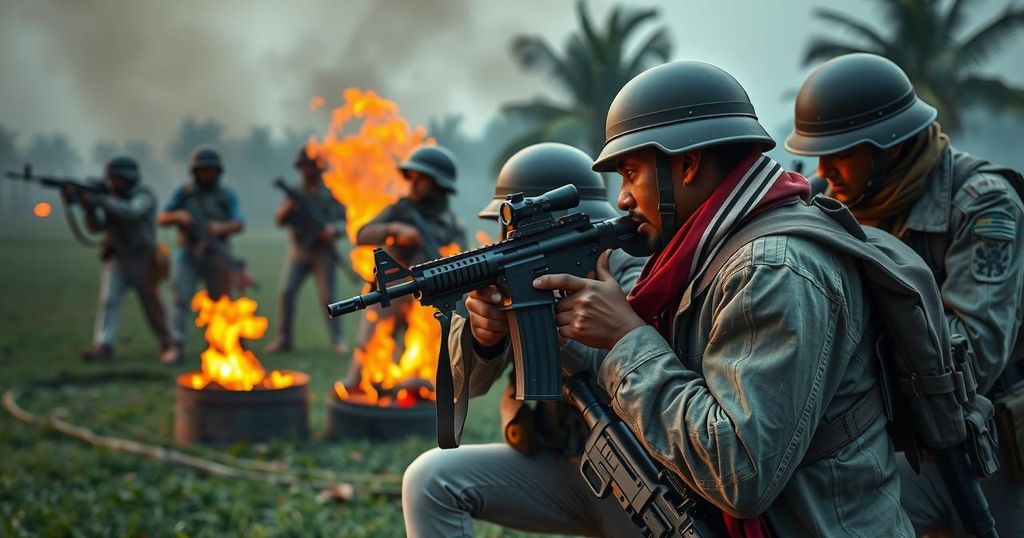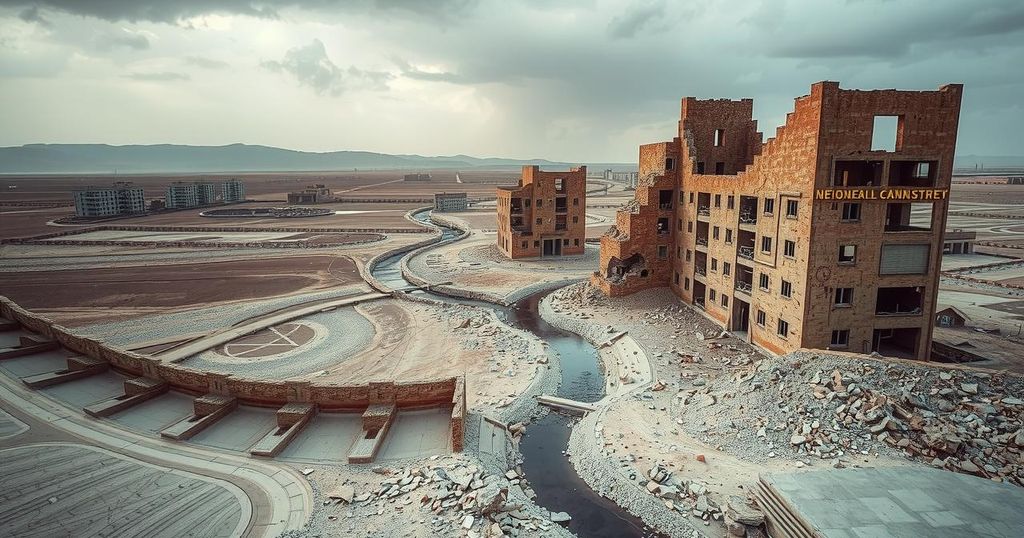Re-emergence of Militants from Myanmar Escalates Ethnic Conflict in Manipur
The influx of militants from Myanmar has intensified the ethnic conflict in Manipur, resulting in significant violence and displacement. The Indian government has deployed additional troops to manage the unrest, while the return of armed groups raises concerns about regional stability and illegal arms trafficking. The ongoing conflict highlights the challenges of addressing underlying ethnic grievances in this diverse region.
In recent months, Indian militant groups that had previously found refuge in Myanmar amid the ongoing civil conflict have been returning to Manipur, significantly intensifying an existing ethnic strife between the predominantly Hindu Meitei community and the primarily Christian Kuki tribes. This resurgence of fighters, armed with more sophisticated weaponry, has exacerbated violence in the region, resulting in approximately 260 fatalities and displacing over 60,000 individuals since May 2023. Critics have labeled this situation as one of the most significant failures in law enforcement under Prime Minister Narendra Modi’s administration.
Security officials indicate that this escalation is rooted in a broader conflict, with Meitei militias siding with Myanmar’s ruling junta and engaging in hostilities against anti-junta factions like the People’s Defence Force – Kalay and the Kuki National Army. Manipur’s complicated history as a hotspot of insurgency, along with a triggering court ruling in 2022 regarding government benefits, has contributed to the ongoing discord. In response to the violence, the Indian federal government has deployed an additional 10,000 troops to the region, bringing the total military presence to nearly 67,000 personnel, supplemented by approximately 30,000 police officers.
Furthermore, the conflict has brought about an increase in organized crime, notably in extortion and the illegal drug trade, as rival factions seek funding for their operations. Insurgents who had previously been contained are regaining strength, as evidenced by the reported resurgence of over 200 Meitei insurgents in just the current year alone. This situation poses new challenges for Indian authorities, complicating both border security and the internal dynamics of power within Manipur.
As tensions persist, Indian Army chief General Upendra Dwivedi has pointed out the complexities arising from the intertwining of local and transnational conflicts, suggesting that the situation has evolved into a protracted struggle requiring a multifaceted approach. Moreover, weaponry has been increasingly sophisticated, posing a significant threat to local stability, and raising concerns over illegal arms trading across the porous border with Myanmar. Given these multidimensional challenges, authorities in India face the daunting task of restoring order while addressing the underlying ethnic grievances that continue to fuel violence in Manipur.
The ethnic conflict in Manipur has been intensified by the return of Indian militant groups from Myanmar, following the military coup in Myanmar in February 2021 and the ensuing civil war. This conflict has exacerbated historic tensions between the Meitei and Kuki communities, leading to violence and displacement. In Manipur, the Meitei community predominantly resides in the Imphal valley, while the Kukis inhabit the more impoverished hills. The interplay of ethnic identity, historical grievances, and contemporary political dynamics, including government distribution of benefits, has complicated the local situation further. Previous attempts at stabilizing the region through militarization have thus far failed to yield lasting peace, as evidenced by the recent resurgence of violent confrontations.
The situation in Manipur represents a critical intersection of local ethnic tensions and broader regional conflicts involving militant groups from Myanmar. The influx of battle-hardened fighters and advanced weaponry has escalated violence, raising alarm among authorities about the stability of the region. Efforts to curb criminal activities and implement military responses underscore the complexity of addressing both immediate security concerns and deeper-rooted ethnic disparities. It is increasingly evident that the path to peace in Manipur requires comprehensive engagement with the social, political, and economic issues at play.
Original Source: kfgo.com








Post Comment